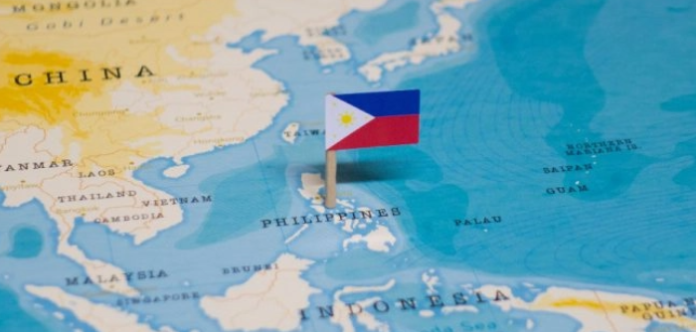After a spell of regulatory overhaul, the Philippines gaming sector faces ‘a critical period’ if it is to retain its status as a hub for major operators.
Keith McDonnell, Director at the KMI Group with a wealth of history with the Asian market, explained that the decision of President Marcos to outlaw POGOs was warmly received by politicians and the general public, with the decision greeted by a standing ovation during his State of the Nation address in July.
With the rules around the issuance of POGO licences having originally been introduced by former President Rodrigo Duterte, McDonnell emphasised that Marcos was of the view that licences were handed out too liberally, causing POGOs to be plagued by a plethora of illicit ventures such as money laundering, prostitution, trafficking, kidnapping, scam businesses and even murder – eventually leading to its downfall.
Commenting on the sector that Marcos inherited, McDonnell stated: “It created a lot of problems for Marcos and offered political capital should he address them.
“Since July there’s been a lot of scurrying around by operators trying to understand what the ban actually means. Some believe it’s another one of those ‘Philippine government’ comments that will not come to any fruition. But he said it publicly and his credibility would be damaged were serious changes not to materialise”.
“I do believe that by the end of the year, all internet gaming licences (IGL’s), including PAGCOR issued POGO’s, will be banned.”
That being said, the presence of tier one operators within the Philippines is unlikely to fall away entirely, according to McDonnell.
“There’s been many lawyers involved and they’ve brought senators to some BPO customer service centers in the Philippines. It’s my understanding that with 95% of the workers being Filipino, Senators are satisfied with the existence of these centers subject to certain caveats”
He predicted that if a business has Special Class BPO accreditation, or partners with an outsourcing business that is accredited, operators will be able to continue all the customer service aspects of running a gambling business, so long as they have a tier one licence somewhere else in the world that is reputable. They also can’t get involved in the transaction of a bet, which must take place in the tier 1 jurisdiction, and must employ at least 90-95% of staff from the local filipino labour pool.”
Nonetheless, given the real reasons to ban POGOs, due diligence for new BPO accreditation won’t be easy so that only “good actors” succeed. Partnering with businesses already accredited is a very attractive option for operators. There are some very interesting options that many legitimate operators are exploring.
As the ban on POGO licences continues to be enforced, there is a risk the underground market may grow, something that McDonnell says the government has to closely scrutinise.
“Action on existing POGO licensed operators has already started to happen. I’ve seen paperwork on this. It’s not a case of there being an announcement in July with all complete by the end of the year. While an Executive Order, providing details around what will and won’t be allowed is due in November, a phased approach is ongoing, with current POGO licence holders asked to report frequently on what they’re doing to make sure they are closed down by December. Meanwhile, some operators have already split their teams up and are locating specific functions elsewhere to mitigate against business risk.”
“Others hope that they can retain a lot of their highly educated and experienced workforce in the Philippines by getting special class BPO accreditation or partnering with an outsourcing business that has it”.
Whilst the country goes through a significant period of transformation, PIGO licences, which enable operators to target the domestic Philippines market, are unaffected by the latest ruling.
McDonnell said there is a possibility we could see an increase in the number of PIGO licence applications off the back of the decision by President Marcos, as businesses look to use the local knowledgeable labour pool for other purposes.
Reflecting on the lessons learnt from the downfall of POGOs in the Philippines, McDonnell noted that the actions of a few bad actors have stained the reputation of the whole industry, which is what led to a standing ovation at the announcement of the ban of POGOs.
“We are in an industry where you can do things right 99% of the time, but it takes just 1% to leave a stain and it takes a while to get over it.”
Providing insight into the possibility that this shift could lead to other markets opening in Asia, he added: “I was on a panel in Lisbon this year and in Macau a few years ago, and on both occasions the subject of new markets opening up was prevalent – yet nothing has really moved.
“Whilst the region as a whole is highly unregulated, with the exception of the Philippines, perhaps these changes might spur others to create a suitable framework for operators in the future”.
“It’s really important that when regulators come in and apply frameworks and taxation that they don’t overregulate or overtax. We’re seeing it in the US, UK and other regulated markets now. There is no way regulated businesses can compete with offshore businesses on betting prices, bonuses or general marketing and Opex if they have to pay 40 to 50% in taxes”.
“The Philippines has been an outstanding location for many businesses in our industry for decades. In introducing new measures to address the illicit activities of some Internet Gaming License holders it has hoped opportunities will remain for resectable businesses to continue and thrive whilst employing thousands of locally knowledgeable and experienced Filipinos”.
Don’t forget to subscribe to our Telegram channel!











